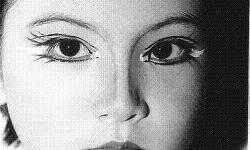Recognizing Eating Disorders In Teenagers
 It can be difficult to spot an eating disorder in a teenager. This is partly because there may be little interaction at meal times and because changes in eating behavior might seem like just another one of those “phases.” However, serious eating disorders often arise during the teen years, just as our young people are becoming more concerned about what peers think of them and worried about finding their way in the world.
It can be difficult to spot an eating disorder in a teenager. This is partly because there may be little interaction at meal times and because changes in eating behavior might seem like just another one of those “phases.” However, serious eating disorders often arise during the teen years, just as our young people are becoming more concerned about what peers think of them and worried about finding their way in the world.
Parents and friends are the most likely to spot an eating disorder before it rises to the level of a health issue, and that’s when treatment is most likely to have a permanent effect. Listed below are some of the warning signs, but caution is in order. If you think a teen has a problem, direct confrontation may not be as helpful as giving them a trusted ear. Express your concern, but avoid accusations or ultimatums.
Eating pattern changes
While tastes in specific foods do change, and today’s favorite is “nasty” tomorrow, if a teen is becoming obsessive about entire categories of foods, that may be an issue. It is sometimes hard to tell what’s going on when they abandon meat, or dairy, or start obsessing about carbs, but you can usually ask for the rationale. Someone who alters their diet for good reason isn’t necessarily having a problem with food. Use your instinct to decide.
Patterns of eating can also change in extent. Watch for inappropriate fasting, reliance on laxatives or diet products – and the latest popular addition, energy drinks.
Weight loss
Growth should continue throughout the teen years. Hormonal changes may alter just how this growth is directed, but gaining weight and height is normal. If a teen is losing weight during this period, it can be indicative of an eating disorder. When there is no annual weight gain, or there is weight loss of more than a few pounds, parents should pay closer attention to diet and eating behaviors.
Unexplained weight loss in this age group can also be a sign of other medical conditions, so getting medical advice is also worthwhile. Physicians can also advise on treatments for eating disorders.
Body image obsession
It is normal to compare oneself to peers as a teen. The first hint of a mustache or real muscles in a boy; breast development and other curves in a girl – there’s nothing abnormal there. But when a teen obsesses about their body, it can be a sign that they are pursuing ways to alter it – a step towards unhealthy eating. The classic story is of the teenage girl who is told she is fat and suddenly starts on a path of purging or simply not eating.
The difference between normal thoughts about body shape and style, and a toxic obsession are usually also detected best by those who know the person. One tip off can be how they react to factual statements about themselves. If you mention they are a normal weight for their height and age, do you get an angry response about being “too fat?” Sometimes the best clue is an inordinate amount of emotional energy invested in body type.
Toxic exercise
Exercise is a good thing. But, like all good things, it can be turned to harm when done to excess. Exercise coupled with narcissism and a diet modified to meet calorie or protein targets can be a warning signal. The trick is telling the difference between over exercise and healthy exercise.
One of the hallmarks of someone over exercising is when they forgo other activities, even activities with an exercise component, to work out. It may also show up when an exercise is adopted to alter some specific part of the body related to body image issues. Sometimes, an exercised induced injury is the first sign there’s a problem.
 Eating Disorder Self Test. Take the EAT-26 self test to see if you might have eating disorder symptoms that might require professional evaluation. All answers are confidential.
Eating Disorder Self Test. Take the EAT-26 self test to see if you might have eating disorder symptoms that might require professional evaluation. All answers are confidential.